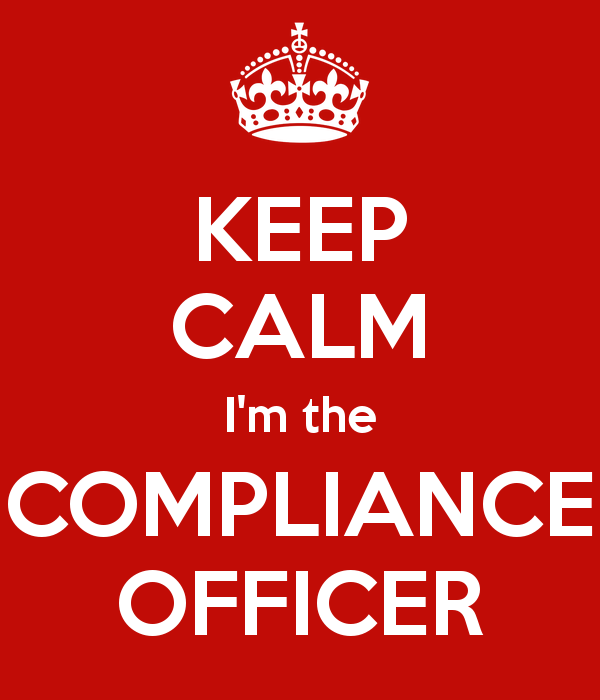Why Hospital-Based EMS Agencies Need Their Own Compliance Officer
Hospital based agencies need their own compliance officers

Hospital based agencies need their own compliance officers. They need individuals who are specifically trained in the many federal, state and local regulations governing ambulance agencies. They need individuals who understand the unique HIPAA challenges that are specific to ambulance (mobile) providers. They need individuals whose primary concerns are educating the ambulance department leadership and staff on ambulance specific compliance issues and insuring that their department is compliant. Lastly, and I anticipate some disagreement here, they need individuals that report directly to the hospital's chief compliance officer rather than to EMS leadership or finance.
The reality is that this is not usually the case. For most hospitals, even those with ambulance operations that are considered large in the EMS industry, the ambulance department revenue and expenses are a very small piece of the pie. For very large hospitals, the annual revenue produced by the ambulance department might be less than average daily inpatient revenue. It is an insignificant amount, a rounding error and hospital compliance officers do not focus on rounding errors. Most hospital compliance training programs include two variations: one for clinical staff and one for non-clinical staff. I do not know of any that include one for out of hospital providers.
Hospital Compliance Officers Aren't Focused on Ambulance Services
The focus of a hospital compliance officer is the larger pie. This isn't wrong. It makes business sense. The other areas pose the biggest threats. There are more patients, more medical records, more employees, more claims submitted, more revenue, more at risk. What is wrong is minimizing the risks that the ambulance department, that small piece of the pie, represents to the organization as a whole.
A hospital based agency that are not separate entities share the hospital's provider number. They may have a unique NPI, but in the eyes of the government there is nothing unique about them. They are the hospital. Their claims are paid to the hospital. If any of those claims are in violation of the false claims act, the population for extrapolation may be much larger than just the ambulance department claims. If you are lucky and the auditors choose not to do that, you should anticipate an audit or the rest of your claims getting looked at a little more closely with a different mindset.
Hospital compliance officers are usually very smart people. Why then do most not have someone on their team dedicated to ambulance compliance?
The Impact on Revenue Cycle Management
Often the reason is that EMS often utilizes a system different from the rest of the hospital or outsources their billing.
For those who choose not to outsource and keep their billing internal, this usually requires an investment into a system or systems outside of the hospital's mainframe. These are not generally supported by the hospital's IT team or generally not supported very well. Very often they do not have the functionality that the hospital has built into their system to audit compliance with HIPAA and other regulations.
In a large organization like a hospital, how likely do you think that the Chief Compliance Officer and the Chief of IT Security think that the other have something covered? How often do you think it happens when the operation represents a rounding error in the total scheme of things? My answer to both questions would be very often.
Some years ago I was contracted by a hospital to take a look at their ambulance revenue cycle. At the time they were billing claims through the hospital's billing system. I discovered that the charges were being entered by a patient financial services' employee who had a chart indicating which ambulances were ALS and which were BLS and which were 911 ambulances and which were not. This, along with a generic ICD9 code for monitoring required was her complete ambulance billing guide. If a BLS ambulance transported, the BLS level was billed. If an ALS ambulance transported, an ALS Level 1 was billed. If it was a 911 ambulance, an emergency was billed. If it was not a 911 ambulance, a non-emergency was billed. There was no consideration of the level of service provided on the ambulance. There was no review of medical necessity.
This was a LARGE hospital based ambulance system!
Understandably, I was blown away looking at their non-compliance. Luckily, they had a lot of denials. In fact, they had so many that they were put on focused medical review by the Medicare contractor. The group that responded to Medicare's additional documentation requests knew less about ambulance billing than the employee who had created the claim. They responded to each request in the same way that they responded when a request was made on a hospital claim - with a stack of medical records and nothing supporting transport by ambulance.
Are you thinking what I was? Did they appeal the denials? The answer is no because the dollar value on an ambulance claim was below the threshold for appeal of their denials group. What is an ambulance claim for a few hundred dollars when you are dealing with inpatient claims that are several thousand or tens of thousands of dollars? The problem is that when you have lots of claims for a few hundred dollars, you end up writing off several million dollars over the course of a year. In this case it was about six million.
My advice to them was to either invest in a system and trained staff dedicated only to ambulance billing or invest in a smaller staff and outsource the ambulance billing. They chose the latter.
Outsourcing can be a great cost saver, but it should never be a completely hands-off solution. Someone needs to perform routine compliance audits of your outsourced work.
If the organization cannot support a compliance officer dedicated to EMS, they should routinely bring in an external compliance expert to conduct reviews and perform EMS role specific compliance training. This expert should report his or her findings directly to the Chief Compliance Officer. The findings may convince some that they cannot afford not to have a dedicated ambulance compliance officer.
Related Posts
ZOLL Pulse Blog
Subscribe to our blog and receive quality content that makes your job as an EMS & fire, hospital, or AR professional easier.
ZOLL Pulse Blog
Subscribe to our blog and receive quality content that makes your job as an EMS, fire, hospital, or AR professional easier.




